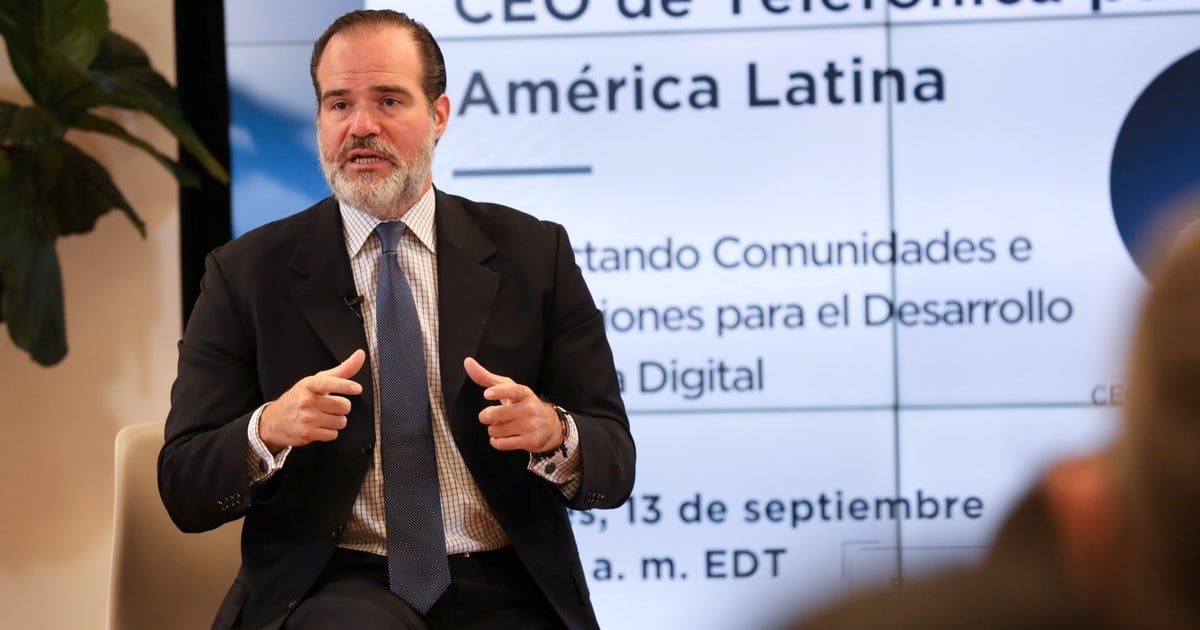The appointment of Mauricio Claver-Carone as the special envoy for Latin America by President-elect Donald Trump has sparked significant reactions, particularly concerning its implications for countries like Cuba, Venezuela, and Nicaragua. As a Cuban-American, Claver-Carone is well-known for shaping hardline policies against dictatorships in the Western Hemisphere during Trump’s first term.
Daniel Benítez, a Cuban journalist based in the United States, emphasized the significance of this appointment through his YouTube channel. According to Benítez, Claver-Carone was instrumental in crafting strategies to restrict international funding to the Cuban regime, target oil tankers that evaded the embargo, and intensify economic sanctions against Havana. The journalist remarked, "His appointment is not good news for the regimes in Havana, Caracas, or Managua."
Claver-Carone's Influence on Hemispheric Politics
In August 2020, the Cuban state media labeled Claver-Carone as a "filibuster" and an "enemy of America" after his appointment as an advisor to Trump. These labels underscored the Cuban regime's anxiety about a potential tightening of U.S. policies under his guidance, which indeed materialized.
Claver-Carone is a prominent figure in international politics with a wide-ranging background. He has held positions such as director of the Inter-American Development Bank (IDB), a member of the U.S. National Security Council, interim director of the International Monetary Fund, and a U.S. Treasury official. His expertise has facilitated strengthening alliances with smaller nations in the region and countering the influence of leftist governments, such as those in Brazil and Argentina during times of political change.
Reactions and Future Outlook
Donald Trump has praised Claver-Carone's ability to "put America's interests first" and tackle issues such as immigration and drug trafficking in Latin America. He is part of a strategic team that includes Cuban-American Senator Marco Rubio, who is proposed to assume the role of Secretary of State, and former Ambassador to Mexico, Christopher Landau, as Deputy Secretary of State.
Cuban-American Congressman Mario Díaz-Balart has voiced his support for Claver-Carone's appointment, highlighting his dedication to promoting democracy and freedom in the region. Díaz-Balart stated that Claver-Carone would prioritize U.S. national security in the Western Hemisphere and oppose agreements that favor the regimes of Maduro and Castro. Previously, Díaz-Balart noted that the dictatorships of Cuba, Nicaragua, and Venezuela are "weak and trembling" at the prospect of a second Trump term with a renewed focus on economic sanctions and diplomatic pressures.
Perspectives from the Cuban Government
Cuban leader Miguel Díaz-Canel declared that the nation is prepared to face a new Trump administration with composure and without fear, relying on the country's ability to withstand and overcome adversities through self-reliance and national talent. Meanwhile, Carlos Fernández de Cossío, Cuba's Deputy Foreign Minister, expressed concern about Trump's potential return to the White House, noting that increased hostility from the United States could adversely affect Cuba's already fragile economy and, in particular, the population's standard of living.
Despite the tensions, Fernández de Cossío asserted the Cuban government's willingness to maintain a "serious and respectful" relationship with the Trump administration, provided that the sovereign interests of both nations are protected. He indicated that Cuba would not be the party to propose suspending existing dialogues or cooperation on sensitive issues.
FAQs on Mauricio Claver-Carone's Impact on Cuba
Who is Mauricio Claver-Carone?
Mauricio Claver-Carone is a Cuban-American political figure known for his hardline policies against dictatorships in Latin America. He has held significant roles, including director of the Inter-American Development Bank and advisor to President Donald Trump.
What impact does Claver-Carone's appointment have on Cuba?
Claver-Carone's appointment signals a potential tightening of U.S. policies towards Cuba, including increased economic sanctions and efforts to limit the Cuban regime's access to international funds.
How has the Cuban government reacted to Claver-Carone's role?
The Cuban government has expressed concern about Claver-Carone's influence, expecting increased hostility from the U.S. Nevertheless, they have indicated a willingness to maintain respectful relations, provided their sovereign interests are safeguarded.
